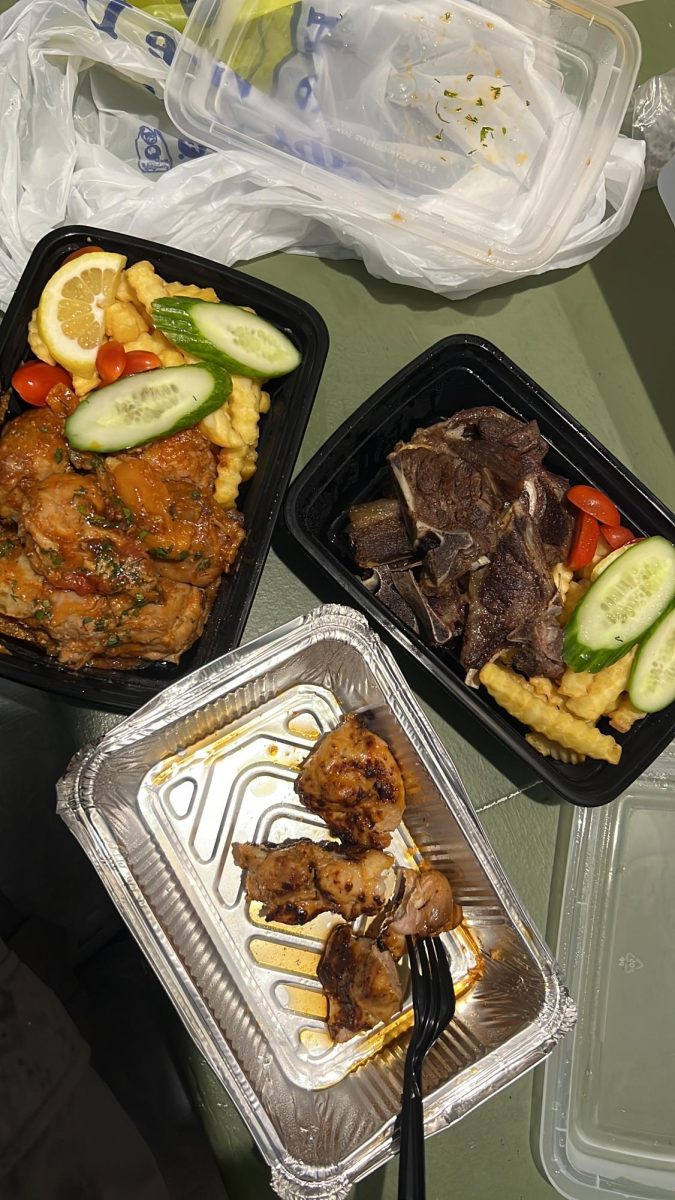Though outsiders might assume Reema Alghmdi’s wedding in Saudi Arabia was an arranged one, the 21-year old Muslim shared a different story of love and freedom. Alghmdi did not know her present husband, Hamad Alghmdi, before he proposed a marriage through her father, but during their three-month engagement she said that she fell deeply in love with him. Alghmdi struggled to find words to describe her feelings, but emphasized that if she wanted to, she could have declined the proposal. “My husband talked with my family. He said he wanted me as a wife and my family talked with me,” Alghmdi said. “I took some time to think about this, and I told my family and they told my husband’s family that I said ‘yes.'” Gender relations is one of many cultural issues that hinder the relationship between the Middle East. Alghmdi, a student in the English Language Service (ELS) on Point Park University’s campus, spoke about the media-fueled misconceptions about controlling men, submissive women and strict religion as a forced way of life. She said Americans are usually misinformed and ignorant about the Muslim way of life. Women are independent and are free to make their own choices. The choices to abstain from sex, not drink alcohol, and cover their hair and body are not a result of parents or a male figure enforcing them, but simply part of their religion. This is not, by any means, a sign of submissiveness, but is in fact a courageous and humble way they live their life for Allah. Because Muslim women live modestly, it is extremely rare that a woman kisses any man before her husband on their wedding day. Due to this taboo, Alghmdi experienced her first kiss, with Hamad, the day they were married. “It was very nice,” she said smiling, “It was very special because it was my first time.” On her wedding day she wore a white dress revealing her arms, neck, face and hair. Muslim women do not have to be fully covered if they are around all women or around men that are a part of their family; husband, father, brothers, uncles. During her wedding, the men were in one room and the women were in another, allowing Alghmdi to dress as she wished. Traditional clothing for Muslim women consists of a hijab: a large piece of fabric that encases the hair and covers the neckline, a ghta: a smaller piece of fabric that covers the face leaving only the eyes open and an abaya, which is the full-length robe that is usually made out of silk or synthetic cloth. Alghmdi feels comfortable being in public without her ghta, so her face is always exposed. “People don’t know what this is,” as she motions towards her hijab and uses her hands to create a ghta. “People are frightened.” Alghmdi also told a story about her experience with a sales clerk when she went shopping for a shirt. “She looked at me and she talked with me in anger and she did not smile with me,” Alghmdi said. “They don’t know what this is. I felt very sad.” Alghmdi refers to the ignorance of those who associate her religious outfit with negative acts Muslim extremists have committed. “I asked for her help and she wouldn’t talk to me because I wear a hijab,” Alghmdi said. “I want American people to understand why I wear my hijab. I want to tell Americans that I am not different.” Amanda Avampato worked at the ELS program for three years and has recently become Point Park’s coordinator for the International Students Services and Enrollment Department. “It’s up to them whether they are covered or not. A lot of people think that it’s whether they are married or not,” said Avampato during a phone interview, “You can be single, you can be married, and you can be covered. It’s up to you. A lot of people think that it’s their husband, but it’s not, it’s how comfortable they are.” In an attempt to deal with different customs, language, and food, one of the most unique changes for Reema was the interaction of men and women. In Saudi Arabia, men and women grow up in almost two separate worlds. The men attend one school and the women attend another. Men and women cannot attend the same social gathering. For Alghmdi, being at a co-ed college was a completely new experience.
Breaking News








